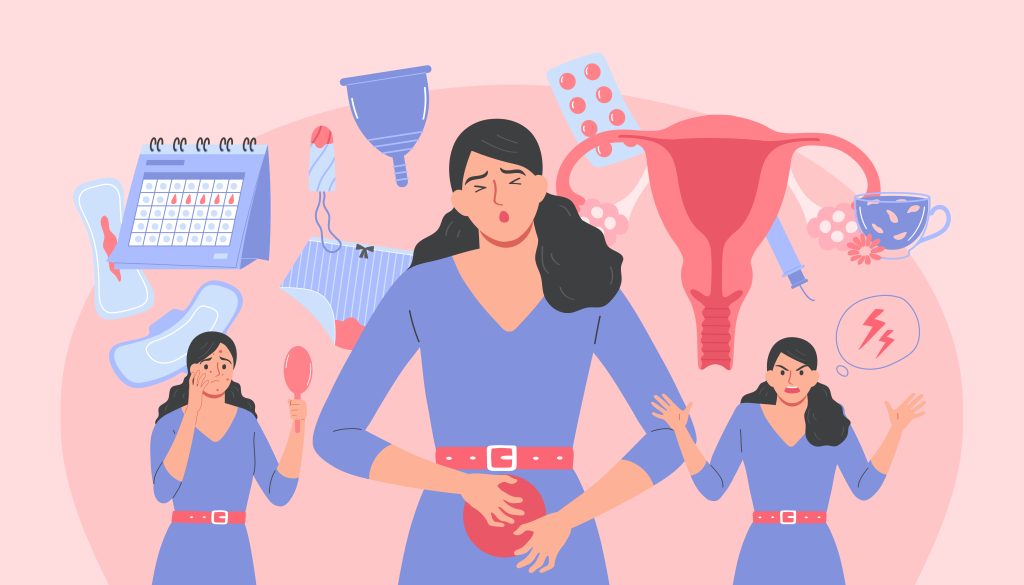Using hormonal birth control can offer many benefits—regulating your cycle, controlling acne, preventing pregnancy—but what happens when you decide to stop? Whether you’re stopping to conceive, switching methods, or simply taking a break, it helps to know what your body might go through.
1. Your Fertility & Ovulation May Resume Quickly
One of the first changes you’ll notice after stopping birth control is your body returning to its natural reproductive rhythm.
Most hormonal methods—like the pill—work by suppressing ovulation. Once you stop, your hormones begin to regulate themselves again, allowing ovulation to resume. For many people, fertility returns within one to three months.
This means you can get pregnant sooner than expected. If you’re not yet ready for pregnancy, it’s important to switch to another reliable contraceptive method.
The good news: stopping birth control doesn’t harm your fertility long term. Studies have shown that previous use of hormonal contraceptives has no negative effect on your ability to conceive later.
2. Your Menstrual Cycle May Change
Because birth control often regulates your period, you might experience some irregularities at first once you stop. It’s common to have what’s known as “withdrawal bleeding” shortly after your last dose—this isn’t your new normal period yet.
In the next few months, you might notice:
- Irregular cycle lengths
- Heavier or lighter periods
- More noticeable cramps or PMS symptoms
If your periods were irregular before using birth control, they might return to that same pattern. However, if your period doesn’t come back after three months, it’s best to consult your healthcare provider to rule out other causes.
3. Skin, Mood, Hair, and Other Body Changes
When you stop taking birth control, your hormone levels shift—and that can affect more than just your period.
Skin and Acne
Many people take hormonal contraceptives to control acne. Once stopped, breakouts may return as your body’s natural androgen levels normalize.
Mood and Libido
Mood swings, irritability, or breast tenderness can also reappear after discontinuing birth control. Some experience a change in libido—either an increase or a decrease—as hormones fluctuate.
Hair and Weight
While evidence linking birth control to weight change is mixed, some people may notice temporary bloating or water retention adjustments. Hair shedding can also occur, but it’s usually short-lived and part of your body’s hormonal recalibration.
4. When to See a Healthcare Provider
Most post-birth control changes are normal and temporary, but it’s wise to pay attention to your body’s signals. See your doctor if:
- You don’t get your period after three months
- You experience very heavy bleeding or severe cramps
- You have persistent acne or mood changes
- You’re trying to conceive but haven’t become pregnant after a year (or six months if over 35)
Your provider can help determine whether your symptoms are part of a normal adjustment or if another issue may be involved.
5. How to Prepare for the Transition
If you’re planning to stop birth control, a few simple steps can help make the process smoother:
- Track your cycle using an app or journal
- Maintain a balanced diet, exercise regularly, and get enough rest
- Stay hydrated and manage stress—it helps your hormones rebalance
- Use another form of protection if you’re not ready to conceive
- If you used birth control for medical reasons (like acne or PCOS), discuss non-hormonal management options with your doctor
6. Myths vs. Reality
Myth: “Stopping birth control makes you infertile.”
Reality: Fertility typically returns quickly once you stop. Most people can conceive within a few months.
Myth: “My body will instantly go back to normal.”
Reality: Your body may need time to readjust. Hormones, cycle patterns, and skin conditions may take several months to stabilize.
Final Takeaway
Stopping birth control is a personal decision—and one that comes with temporary changes as your body finds its natural rhythm again. You may notice shifts in your period, mood, or skin, but these are all normal parts of hormonal adjustment. With patience and awareness, you’ll be better equipped to handle the transition confidently and healthily.
References:
Hertility Health. (n.d.). Coming off the pill: What to expect. Retrieved 2025, from https://hertilityhealth.com/blog/coming-off-the-pill
Medical News Today. (2024). Stopping birth control: Side effects and considerations. Retrieved 2025, from https://www.medicalnewstoday.com/articles/stopping-birth-control
Verywell Health. (2023). When does fertility return after stopping birth control? Retrieved 2025, from https://www.verywellhealth.com/when-does-fertility-return-after-stopping-birth-control-4056322








